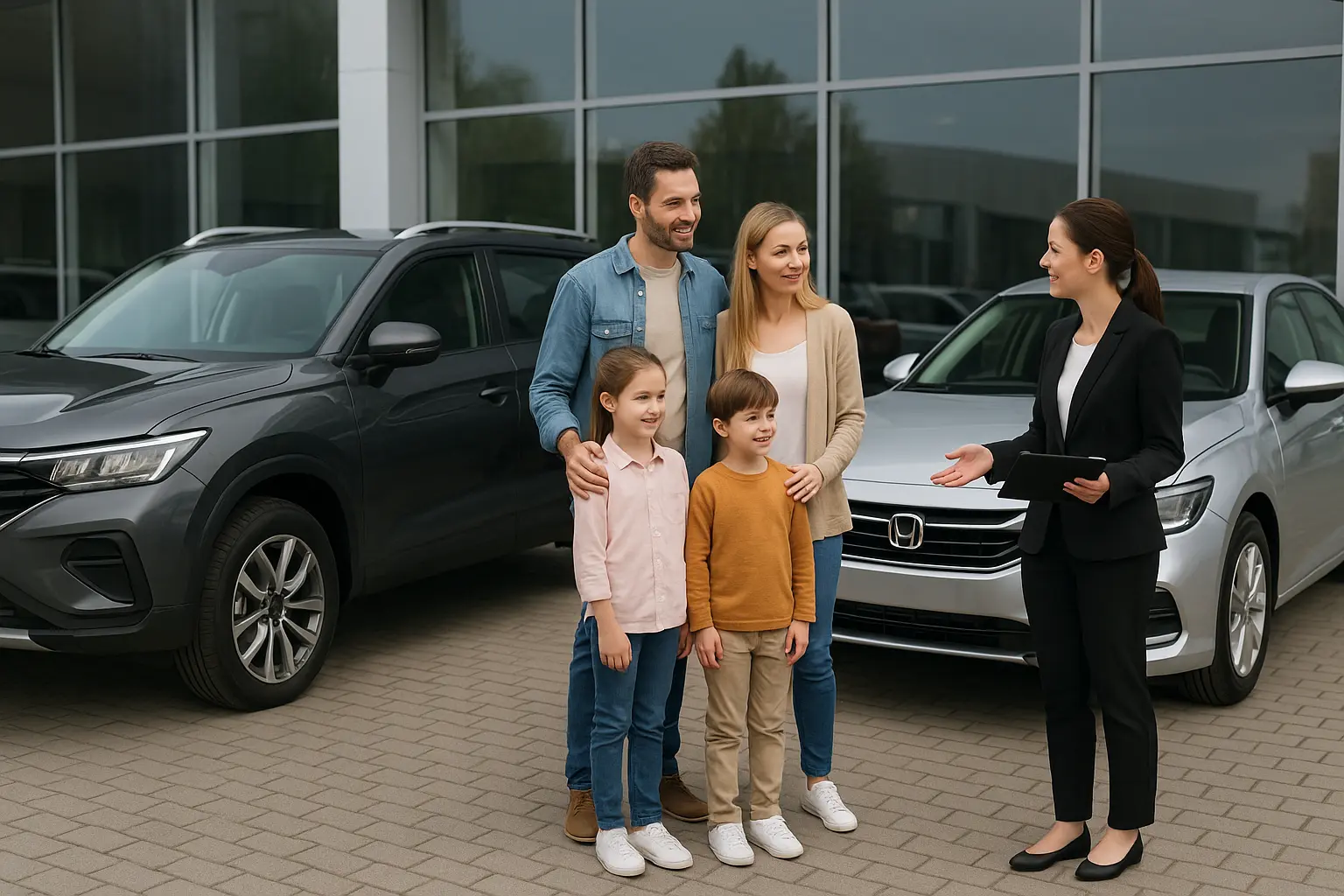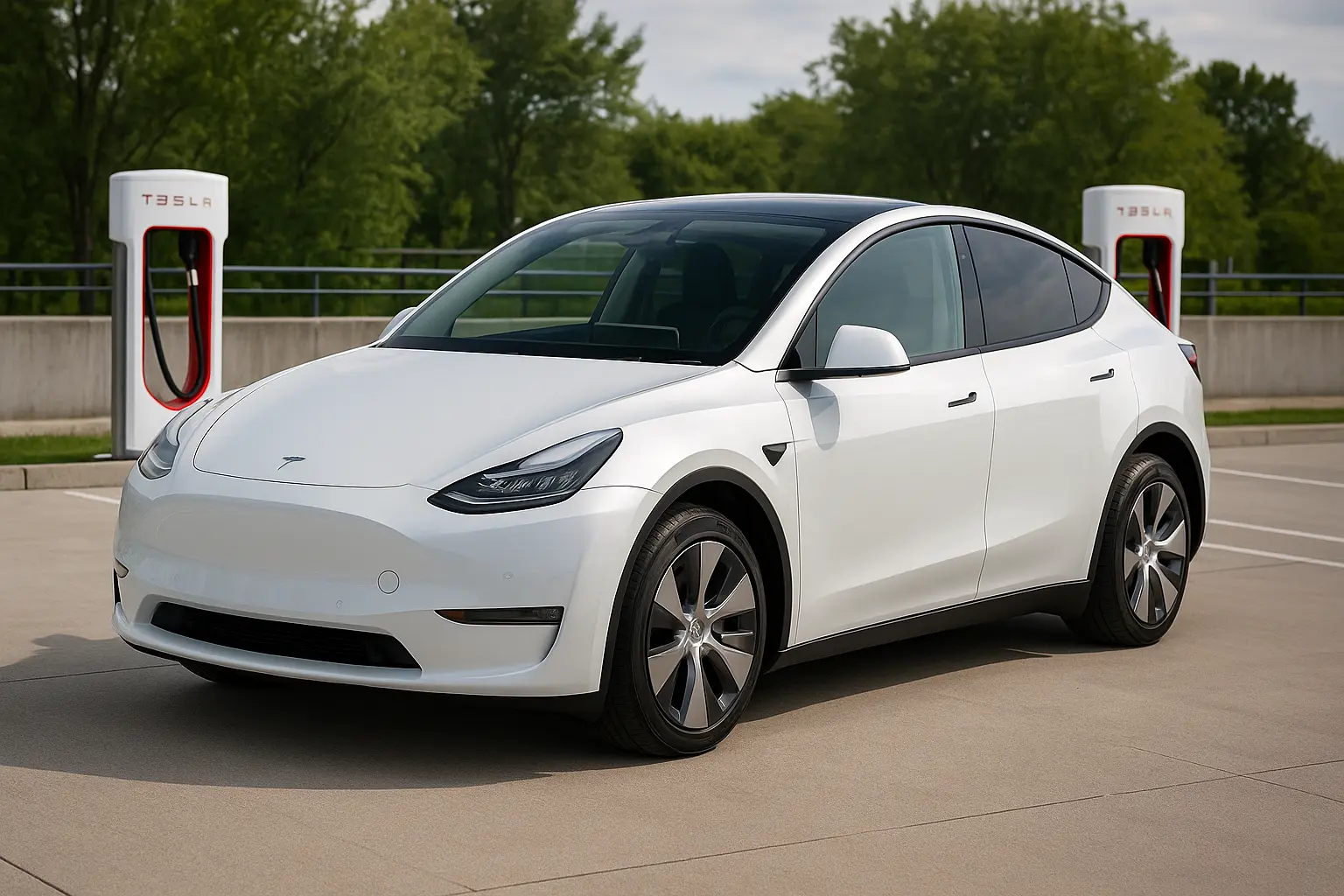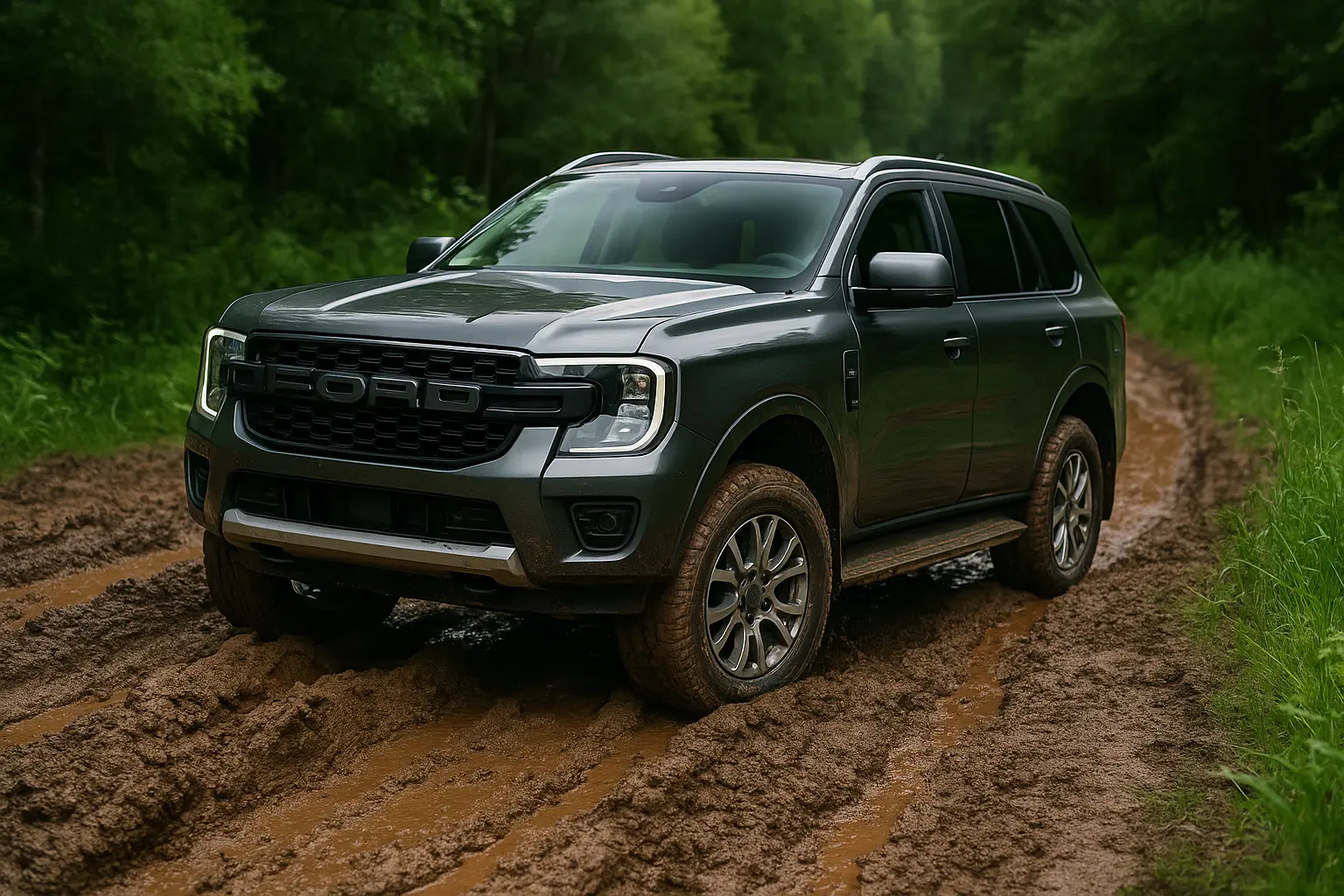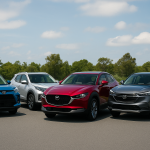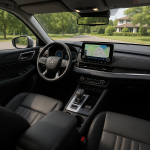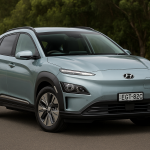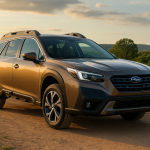When it comes to buying a new family car in Australia, the choice often comes down to two popular categories: the SUV and the sedan. Both vehicle types have evolved dramatically over the past decade, adapting to modern demands for comfort, efficiency, safety, and technology. But which one truly delivers the best value for families in 2025 and beyond?
This guide takes a deep dive into SUVs vs sedans, focusing on what matters most to Australian families: comfort, fuel efficiency, space, safety, practicality, and ownership costs. We’ll explore key considerations, look at use-cases for city and regional driving, and provide insights to help you make the right choice.
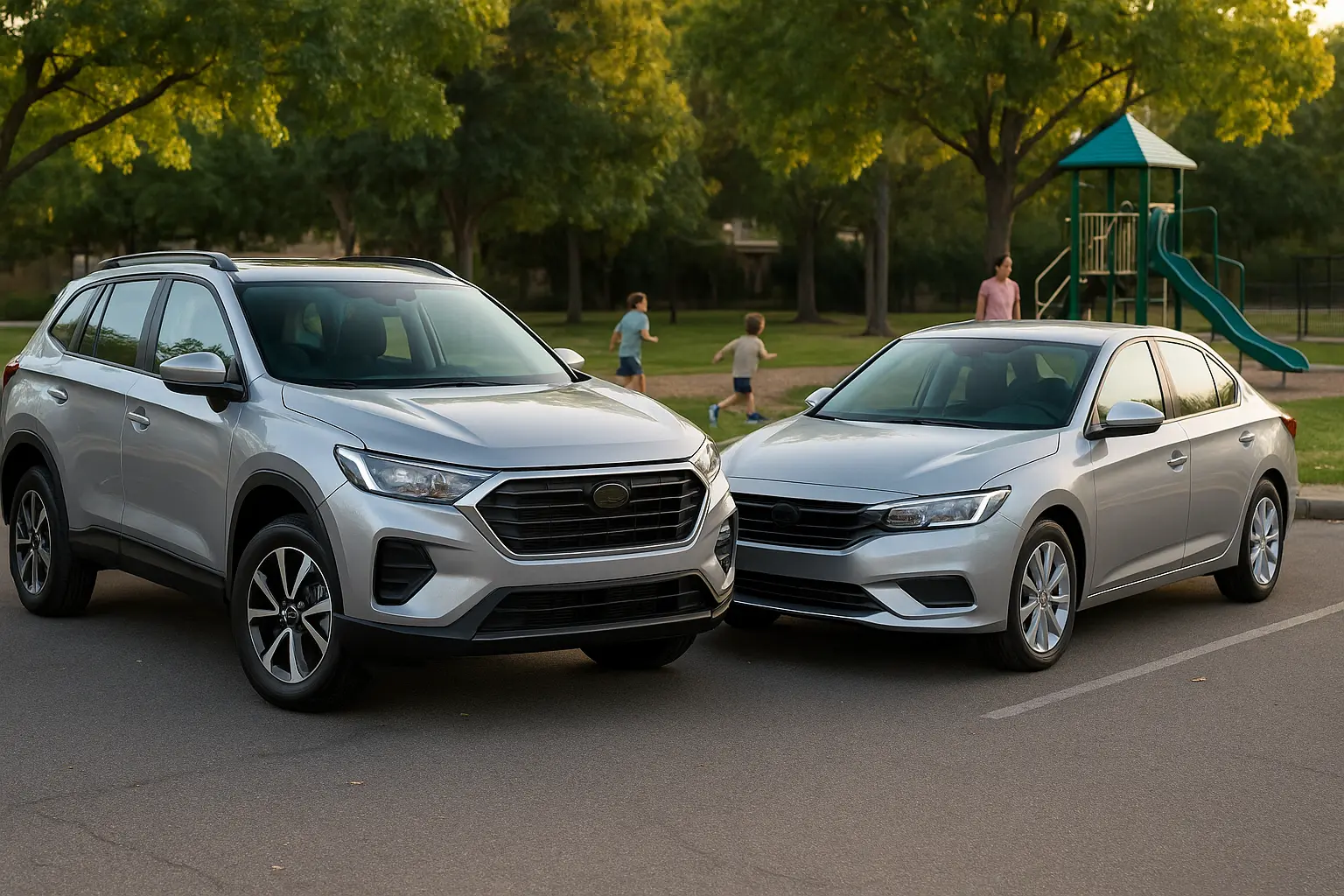
The Popularity of SUVs in Australia
Over the last decade, SUVs have surged in popularity, dominating new car sales across Australia. According to industry data, nearly half of all new vehicles sold in 2024 were SUVs. Families are drawn to SUVs for their elevated driving position, spacious interiors, and perceived safety advantages.
SUVs come in a wide range of sizes—from compact city crossovers like the Mazda CX-30 or Toyota Corolla Cross, to full-sized family haulers like the Toyota Kluger or Kia Sorento. This flexibility makes them appealing to families with diverse needs, whether it’s school drop-offs in Sydney suburbs or long road trips through the outback.
The Resilience of Sedans
While SUVs may dominate, sedans haven’t disappeared. Brands like Toyota Camry, Hyundai Sonata, and premium models such as the BMW 3 Series or Mercedes-Benz C-Class continue to attract buyers. Sedans are especially popular with drivers seeking a lower purchase price, better fuel efficiency, and superior ride dynamics.
For many families, sedans offer a more economical alternative while still delivering the safety, comfort, and tech features modern buyers expect.
Comfort: SUV vs Sedan
Family buyers place comfort at the top of their priority list. Here’s how each body type compares:
Seating Position & Accessibility
- SUVs: Higher seating positions provide excellent visibility and easier ingress/egress, especially useful for parents loading kids into child seats. Elderly family members also find SUVs easier to step into.
- Sedans: Sit lower to the ground, which can make entry and exit less convenient. However, the lower centre of gravity contributes to a smoother, more stable ride on highways.
Ride Comfort
- SUVs: Larger wheels and taller suspension sometimes result in a firmer ride, particularly on cheaper models. However, premium SUVs increasingly offer adaptive suspension that balances comfort with handling.
- Sedans: Known for their plush, stable ride, especially on highways. The lower body and longer wheelbase in some models (like the Toyota Camry) deliver a comfortable cruising experience.
Cabin Space
- SUVs: Generally offer more legroom and headroom, particularly in the rear seats. This is crucial for growing families and teenagers.
- Sedans: Rear passenger space can feel more confined, although larger sedans still provide adequate room.
Verdict: For sheer family comfort and accessibility, SUVs have the edge. But if smooth long-distance cruising matters most, sedans still shine.
Fuel Efficiency: SUV vs Sedan
One of the biggest debates for families is fuel efficiency.
Sedans – Fuel Economy Champions
Sedans are typically lighter and more aerodynamic, which translates to better mileage. For example:
- Toyota Camry Hybrid: Around 4.5L/100km (combined).
- Hyundai Sonata Hybrid: Around 5.0L/100km.
For families watching fuel budgets, sedans often win this round.
SUVs – Improving Efficiency with Hybrids and EVs
Traditional SUVs use more fuel due to their weight and higher drag. However, hybrid and electric SUVs are closing the gap:
- Toyota RAV4 Hybrid: 4.7L/100km (combined).
- Hyundai Tucson Hybrid: ~5.5L/100km.
- Tesla Model Y: Zero fuel costs, only electricity charging.
Verdict: If petrol savings are the top priority, sedans are still the go-to choice. But with the rise of hybrid SUVs and EVs, families can enjoy efficiency without sacrificing space.
Space & Practicality
When it comes to family cars, space is non-negotiable.
- SUVs: Offer large boot space, higher cargo loading, and flexibility with fold-flat rear seats. Many also include optional third rows (7-seaters), making them perfect for big families or those needing extra room for carpooling.
- Sedans: Limited boot opening and fixed rear seats make bulky cargo harder to load. However, boot capacity in large sedans like the Camry can still handle prams and groceries.
Verdict: For everyday practicality—strollers, sports gear, camping equipment—SUVs win hands down.
Safety Considerations
Safety remains a critical deciding factor for Australian families.
- SUVs: Heavier and larger, offering strong crash protection. Their elevated driving position provides greater visibility, but higher centres of gravity mean increased rollover risk.
- Sedans: Benefit from lower rollover risk and often sharper handling, which can help avoid accidents. Many sedans also achieve 5-star ANCAP safety ratings, just like SUVs.
In 2025, both SUVs and sedans are equipped with advanced driver-assist systems:
- Adaptive cruise control
- Autonomous emergency braking
- Blind-spot monitoring
- Lane-keeping assist
Verdict: Both body types can be equally safe if you choose a modern model with full safety tech.
Driving Experience
- SUVs: Provide commanding views of the road, excellent for city driving and tackling rougher rural roads. However, larger SUVs can feel bulky to manoeuvre in tight urban spaces.
- Sedans: Deliver a sportier, more responsive driving feel thanks to their lower stance and weight. They’re easier to park and often more enjoyable for highway cruising.
Verdict: Choose SUVs if you value visibility and versatility; choose sedans if driving enjoyment and agility matter most.
Costs of Ownership
Purchase Price
- Sedans are typically more affordable upfront.
- SUVs often cost more due to higher demand and larger size.
Insurance & Maintenance
- SUVs: Higher repair costs due to larger components and higher market value.
- Sedans: Lower average insurance premiums and cheaper tyres/servicing.
Resale Value
- SUVs currently enjoy stronger resale demand in Australia. A used Toyota RAV4 or Mazda CX-5 can fetch higher prices compared to an equivalent sedan.
Lifestyle Factors
- Urban Families: Sedans are great for city commuters who want to save on fuel and parking.
- Suburban & Regional Families: SUVs are better suited for mixed driving, offering ground clearance for unsealed roads.
- Large Families: SUVs with seven seats are the only practical option.
- Young Families: Sedans remain a budget-friendly choice for couples with one or two kids.
Environmental Considerations
With Australia’s push toward cleaner transport, families should also consider eco-credentials.
- Sedans: Smaller engines and hybrid variants make them efficient with low emissions.
- SUVs: While historically less eco-friendly, hybrid and electric SUVs are making strides, with models like the Tesla Model Y or BYD Atto 3 leading the charge.
The Future: EV Sedans vs EV SUVs
The future of family cars lies in electrification. Interestingly, most new EV launches in Australia are SUVs rather than sedans, reflecting consumer demand. While the Tesla Model 3 sedan remains popular, models like the Tesla Model Y, Kia EV9, and Hyundai Ioniq 5 show that EV SUVs are the direction most families will head.
Final Verdict: SUV or Sedan?
There’s no one-size-fits-all answer—it depends on your family’s priorities.
- Choose an SUV if:
You want maximum space, higher driving position, versatility for road trips, or a seven-seater option. - Choose a sedan if:
You prioritise lower costs, fuel efficiency, smooth highway driving, and don’t need extra cargo or seating capacity.
For most Australian families in 2025, the SUV will remain the more practical and popular option. However, sedans still offer unbeatable value for smaller families and budget-conscious buyers.
Conclusion
The SUV vs sedan debate is less about one being “better” than the other, and more about which fits your lifestyle. Australian families are spoiled for choice, with manufacturers offering advanced safety, hybrid technology, and comfort across both categories. Before deciding, weigh up how your family uses the car day-to-day: school runs, commutes, road trips, and weekend getaways. The right choice will balance comfort, efficiency, safety, and practicality—and ensure your family enjoys the drive for years to come.
Leave a comment
Your email address will not be published. Required fields are marked *


